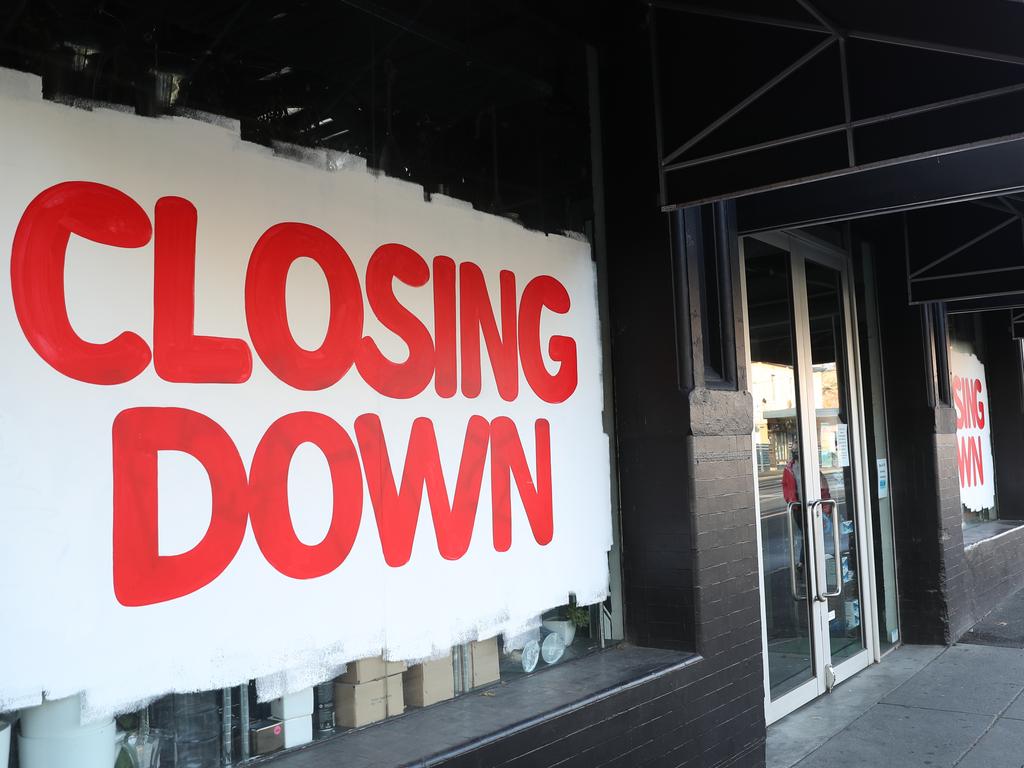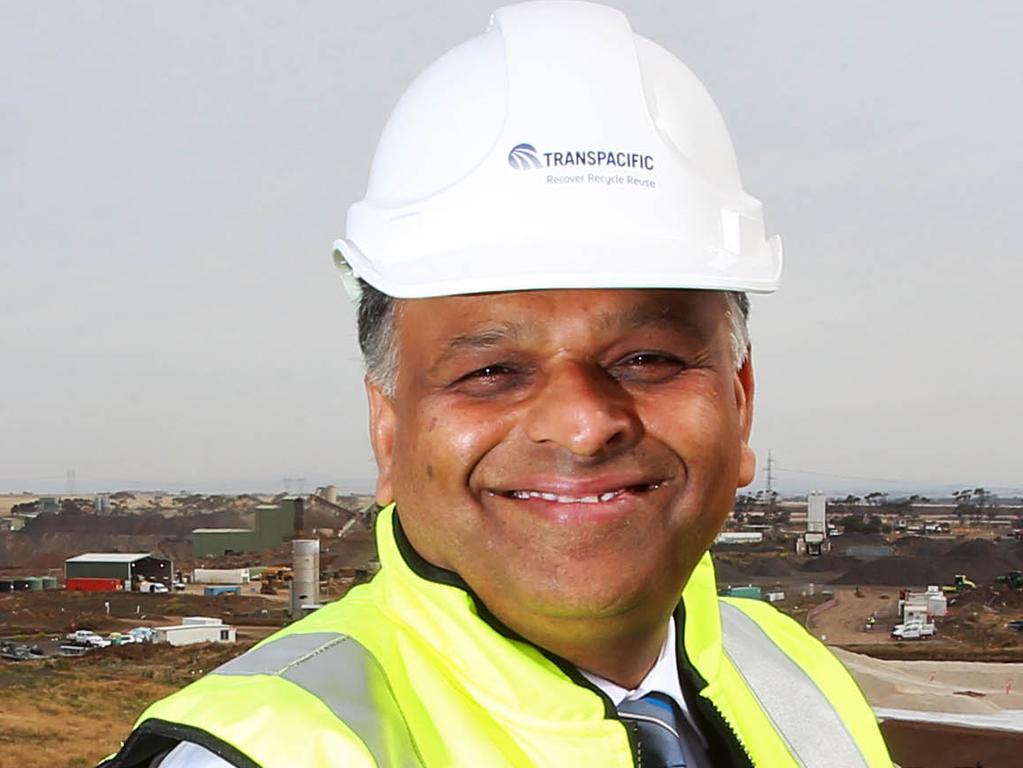
On some estimates the pay forgone is about $10m — or 10 per cent of the $111m Crown picked up from JobKeeper, of which $43.4m went to subsidise people at the casino still working.
The pay survey is not scientific but indicative as the country is preparing to fall off the economic cliff, with JobKeeper and other handouts being wound back.
The standout chief executive in terms of pay cuts was Qantas boss Alan Joyce and his chairman Richard Goyder, who took zero pay from April through to July 31. Joyce is now struggling through on 65 per cent of his normal base pay, which works at $1.3m.
When the Qantas annual report is released, it will show Joyce picked up about $1.7m for the 2020 year, down from $9.9m in 2019.
Other companies to reduce chief executive pay included Aristocrat, Sydney Airport, Cochlear, Scentre Group, Dexus, Lendlease, Mirvac, Oil Search, Sonic, Stockland, NAB and Vicinity.
Other companies in the top 50 such as Woodside have frozen pay and performance-related bonuses have suffered falls. Sue Morphett at Chief Executive Women will tell you that what happens at the top of companies sends an important signal to the troops.
This is why she wants more senior executive men to take paternity leave to allow their partner back to work and show other men down the line that it is acceptable to spend more time with family.
Culture is set at the top as the foreign leaders of AMP, Rio, QBE and the still remaining boss at Cleanaway have found out.
Same goes with pay, which is why Magellan executive chair Hamish Douglass waived his bonus last year, and on flexible working, which is why those in favour cheer photos of executives such as Telstra’s Andy Penn at home.
The average pay cut for those companies where the bosses did forgo salary was between 15 per cent and 35 per cent for the final quarter of the last financial year.
That sounds meaningful until you work through the numbers of someone earning $1.5m a year in base pay, or $375,000 a quarter, which means the amount forgone is about $75,000, which is about what the average person earns.
Sims’ eyes on quality
ACCC boss Rod Sims has underlined a key issue in the debate over his media code, being that while Facebook and Google “have really clever business models they are not providing news”.
The aim of the code is to protect quality journalism, he told the Australia Institute.
Sims also flagged changes but said what wouldn’t change is the compulsory arbitration and non-discrimination clauses that he described as the glue to the code.
Changes that seem likely include the addition of ABC and SBS, which is pushed by the ALP and the Greens, a cut in the notice period for algorithm changes from 28 to say 14 days, and some clarification to note that the arbitrator should consider any traffic sent from Google to the news organisation.
The latter two would please the platforms, but in terms of two-way traffic the obvious question is how much traffic is actually generated by say Google and how many people would go to the news sites for news if Google was not there.
Sims rejected claims he was protecting old media, saying “this is not a case of creative destruction because Google and Facebook don’t produce news”.
Asked about their threats to leave, Sims said it “would be a shame”.
Scentre buys flexibility
Scentre Group’s Peter Allen has bought himself increased financial flexibility with a landmark $4bn US hybrid issue as he attempts to adapt the company to the post-COVID world.
The issue arranged by UBS is a first for the company and also the first big hybrid issue by an Australian REIT since the global financial crisis.
It comes against a background in which Allen has repeatedly rejected eager investment bank calls to issue equity to push down his gearing.
Allen learned the game from the Lowy family, which was also reluctant to issue equity, but in its case it was to protect the company’s shareholding in the old Westfield companies.
The $4bn issue at 4.75 per cent for six-year notes and 5.12 per cent for 10-year notes is expensive debt but arguably cheap quasi equity.
The company’s NTA at $3.66 a share is well above today’s price, which rallied 2.2 per cent to $2.32 on the news.
This means the very expensive debt was raised instead of even more expensive equity.
The rating agencies treat the non-convertible hybrid as 50 per cent equity and the issue reduces gearing from 38 per cent to 27 per cent. This, it should be noted, is above industry peers like Stockland at 25.4 per cent.
Typically when the market thinks a company is due an equity raising its stock price will fall, and Scentre fell from $2.73 in June to under $2 last month. This partly explains Thursday’s rally, but there are some around the bourse who think at some point an equity raising is inevitable.
COVID-19 has clearly hurt the shopping centre group and challenged its operating model even as Allen had it on track to be more a “living centre”, with more space being taken up by non-shopping activities such as movies, gyms, restaurants, medical centres, beauty centres and the like.
Across its centres some 43 per cent of the space is taken up by experiences you consume on the spot, up from under 10 per cent a decade ago.
The game is to repurpose the space to make up the ground lost by the Targets and DJs and Myers of the market to generate income through foot traffic.
The post-COVID regional push could play into its hands, even though it does have some big centres in the CBD.
Some store owners are demanding a shift in rental terms from CPI-plus to a percentage of sales, but the latter would put the company in the frame as a retailer rather than a mall owner and Allen is resisting.
In reality, Allen is of course also a retailer, albeit a big-picture one.
The hybrid can be bought back at any time and Scentre has the option of not paying the coupon rate if it also stopped paying dividends.








Australia’s top executives have suffered the effects of COVID-19 like everyone else, but few have taken a hit in their hip pocket, with only about 12 of the top 50 chief executives’ fixed pay falling.